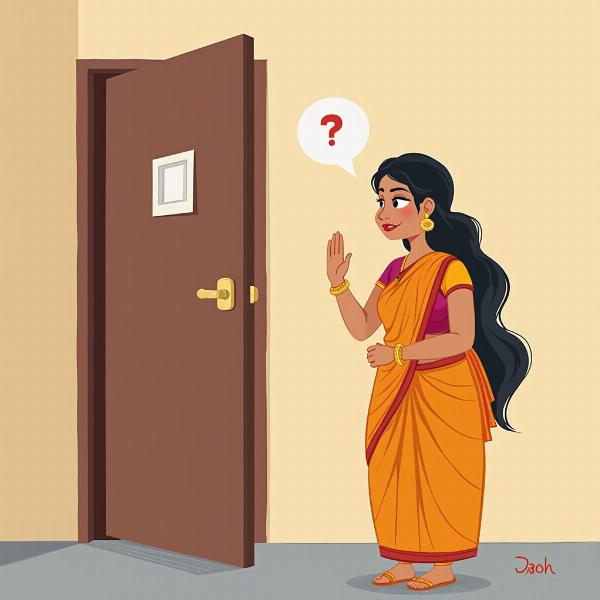Understanding the nuances of “as a wish” in Hindi can be tricky. It’s not a direct translation, and the best way to express it depends heavily on context. This guide delves into various ways to convey the meaning of “as a wish” in Hindi, exploring different scenarios and cultural implications. We’ll examine common phrases, formal and informal usage, and provide practical examples to help you communicate effectively.
Expressing “As a Wish” in Different Contexts
The English phrase “as a wish” can imply several things: a desire, a blessing, a command disguised as a polite request, or even a sarcastic remark. In Hindi, capturing these subtle differences requires careful word choice.
Expressing a Desire
When “as a wish” represents a simple desire, you can use words like “इच्छा” (ichchha – desire) or “कामना” (kamna – wish). For example:
-
“As a wish, I’d love to visit India.” translates to “एक इच्छा के रूप में, मैं भारत जाना पसंद करूँगा” (Ek ichchha ke roop mein, main Bharat jaana pasand karunga).
-
You can also say “मेरी कामना है कि मैं भारत जाऊं” (Meri kamna hai ki main Bharat jaaun) – My wish is that I go to India.
Conveying a Blessing or Good Wishes
For blessings or well-wishes, phrases like “आशीर्वाद” (aashirvaad – blessing) and “शुभकामनाएं” (shubhkamnaen – good wishes) are more appropriate.
- “As a wish, I hope you succeed.” can be expressed as “मेरी शुभकामनाएं हैं कि आप सफल हों” (Meri shubhkamnaen hain ki aap safal hon) – My good wishes are with you for success.
Expressing a Polite Request
Sometimes “as a wish” softens a command, making it a polite request. In such cases, “कृपया” (kripya – please) or “ज़रूर” (zaroor – certainly/please) are useful.
- “As a wish, please close the door.” could be “कृपया दरवाज़ा बंद कर दीजिए” (Kripya darwaza band kar dijiye).
 Polite Request in Hindi
Polite Request in Hindi
Implying Sarcasm
While less common, “as a wish” can sometimes carry a sarcastic tone. This is harder to convey directly in Hindi but can be achieved through tone of voice and context. One possible approach is using “जैसा आप चाहें” (Jaisa aap chahen – as you wish) with a specific inflection.
Formal vs. Informal Usage
Just like English, Hindi has formal and informal registers. This distinction is crucial when using “as a wish.” Formal situations demand respectful language, while informal settings allow for more casual expressions.
-
Formal: Use respectful verb conjugations and honorifics like “जी” (ji) and “आप” (aap).
-
Informal: Simpler verb conjugations and pronouns like “तू” (tu) (singular informal “you,” use with caution) and “तुम” (tum) (plural informal “you”) are acceptable.
Common Phrases and Examples
Here’s a table summarizing common ways to express “as a wish” in Hindi:
| English Phrase | Hindi Translation | Context |
|---|---|---|
| As a wish (desire) | इच्छा के रूप में (ichchha ke roop mein) | Expressing a personal desire |
| As a wish (blessing) | आशीर्वाद के रूप में (aashirvaad ke roop mein) | Giving blessings |
| As a wish (request) | कृपया (kripya), ज़रूर (zaroor) | Making a polite request |
| As you wish | जैसा आप चाहें (jaisa aap chahen) | Agreeing, sometimes sarcastically |
Conclusion
Understanding the context and choosing the appropriate phrase is crucial when translating “as a wish” to Hindi. This guide has provided you with various options to accurately convey your intended meaning, ensuring clear and effective communication. Remembering the cultural nuances and formal/informal distinctions will further enhance your ability to speak Hindi naturally and respectfully. By using the correct phrases and understanding the subtleties of the language, you can confidently navigate various social situations.
FAQ
-
What is the most common way to say “as a wish” in Hindi? It depends on the context. For a simple desire, “इच्छा के रूप में” (ichchha ke roop mein) is appropriate. For a blessing, use “आशीर्वाद के रूप में” (aashirvaad ke roop mein).
-
Is “jaisa aap chahen” always sarcastic? No, it usually means “as you wish” in a neutral or agreeable way. Sarcasm is conveyed through tone and context.
-
Can I use “tu” and “tum” interchangeably? No. “Tu” is singular and very informal, while “tum” is plural and less formal than “aap.” Use “aap” in formal situations.
-
How can I learn more about Hindi nuances? Immersing yourself in the language through conversations, movies, and books is a great way to learn. Meaning-Hindi.in offers excellent resources and translation services to support your learning journey.
-
What is the difference between “ichchha” and “kamna”? Both mean “wish” or “desire,” but “kamna” often carries a slightly more formal or profound connotation.
About Meaning-Hindi.in
Meaning-Hindi.in is your one-stop solution for professional Hindi translation services. We specialize in business, legal, technical, website localization, educational, and urgent translations, catering to diverse client needs. Our expert linguists ensure accurate and culturally sensitive translations. Need help with your Hindi translation project? Contact us at [email protected] or call us at +91 11-4502-7584. Meaning-Hindi.in is committed to bridging the language gap and facilitating seamless communication.